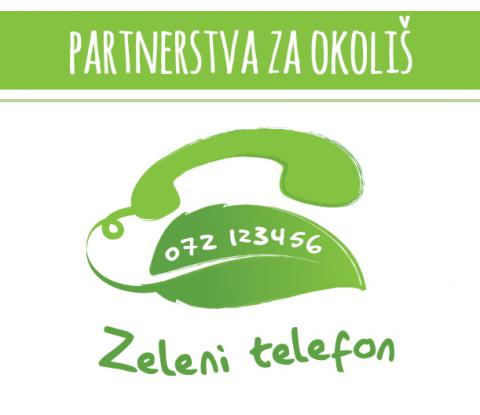Analysis of the reports received by the Green Phone Network in 2014 and the first half of 2015
Members of the Network, within the project “Partnership for the Environment: Capacity Development in the protection of the Environment in the Public and Civil Sectors in Croatia through the Utilisation of the Green Phone Service Network” developed an analysis of calls for 2014 and 2015. During 2014, the members of the Network received a total of 2,994 reports.
Table 1 shows the number of reports by category and the total number for each association individually, as well as the total number of reports by categories on the Green Phone Network.
Table 1, Reports received by type of problem and by member associations in 2014.
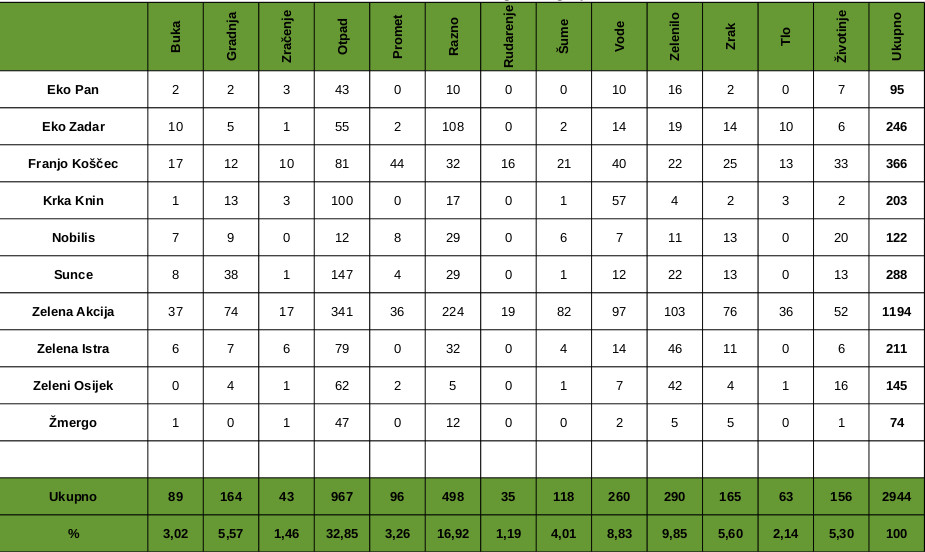
Chart 1, Reports received by member associations in 2014
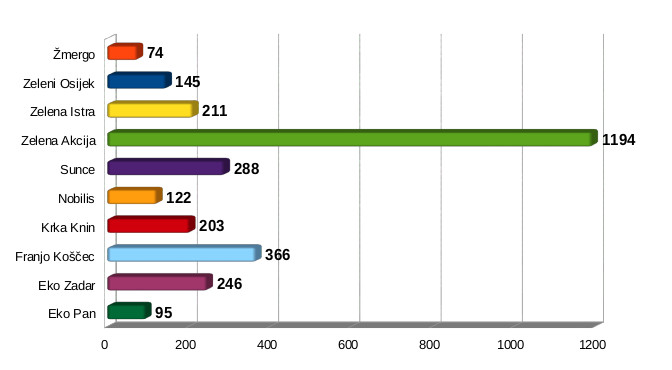
Chart 2, Reports received by categories in 2014.
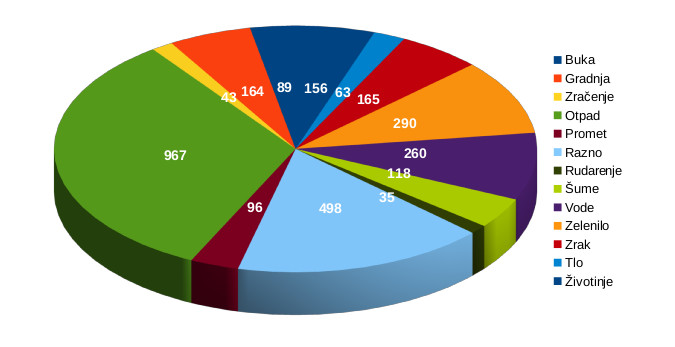
During the first half of 2015, the members of the Network received a total of 1,363 reports. Table 2 shows the number of reports by category and the total number for each association individually, as well as the total number of reports by category received by the Green Phone Network.
Table 2, Reports received by type of problem and by member associations in the first half of 2015
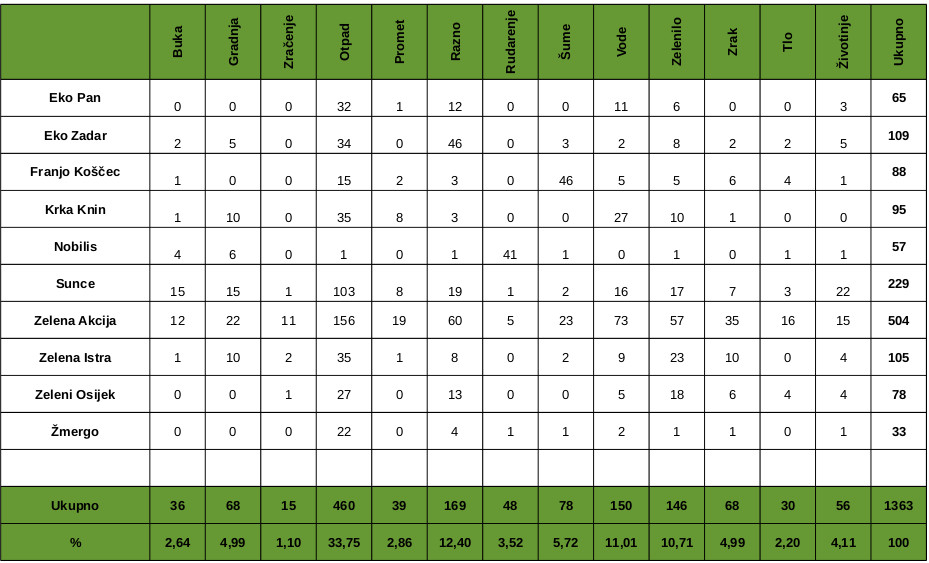
Chart 3, Share in the received reports by category in the first half of 2015

Reports by category
The highest number of total calls is still related to the category of waste. Within this category, 967 reports accounting for 32.85% of the total number of reports were received in 2014, and 460 reports, which is 33.75% of the total number of reports, were received in the first half of 2015. This continues the trend from the previous years, when the waste problems of the citizens triggered the most attention. Unlike previous years when most of the reports within this category related to the improper disposal of waste and waste management, i.e. illegal landfills, the number of inquiries about the possibilities of separate collection of certain types of waste, as well as inquiries about the possibilities of increasing the number of containers and garbage collection cans increased in this period, and ultimately the citizens are wondering where does the separately collected waste go. We assume that the reason for this trend is the increase of public awareness of the need for adequate waste disposal and its separation according to different types. Among other categories, greenery and water stand out. Share of the category greenery in the total number of reports amounted to 9.85% in 2014, and 10.71% in the first half of 2015. The most common reports within this category are those of citizens from urban areas, and are related to the maintenance of public green areas, specifically cutting of trees in city parks, alleys, and so on. Very often it is about regular maintenance, but since the citizens are not familiar with the plans of regular maintenance of city enterprises which take care of public green areas, in our opinion their concerns are justified. We believe that the main failure of the enterprises which take care of public green areas is their lack of transparency in work and lack of providing the citizens with information about the plans of maintenance of public green areas. In most counties, a great number of reports within this category concerns parcels where ragweed grows. Share of the category water in the total number of reports amounted to 8.83% in 2014, and 11.01% in the first half of 2015. Although the network consists of “sea” and “land” associations, a common problem reported by the residents of all counties is illegal emptying of septic tanks and the discharge of sewage. Citizens also react to unusual stains spotted in rivers, seas, and lakes.
Reports according to the role of Green Phone
Due to a triple role of the Green Phone in solving reported problems (1. giving advice and information, 2. mediation, 3. direct participation), Green Phone activists deal independently with the majority of reports, without direct cooperation with the callers. Although the aim of the Green Phone is to encourage the citizens to actively and independently participate in solving environmental problems, the previously mentioned fact that Green Phone activists dealt independently with the majority of reports points to two possible problems: lack of knowledge and information among citizens, and their “fear” of the consequences of the report. The latter goes in favour of the fact that more than 50% reports to the Green Phone are still anonymous.
Cooperation with the relevant department
It is impossible to generally evaluate the cooperation of the Green Phone with the competent services due to the differences in treatment of received reports from county to county. For example, the cooperation with the sanitary inspection is estimated as excellent by one Green Phone, and unsatisfactory by another.
The most common problems that occur during the cooperation are:
- sluggishness and slowness in responding, which leads to deterioration of the reported situation
- not knowing the area and incompetent officials,
- lack of feedback to inquiries and reports,
- lack of feedback on the state of the report (whether settled or not),
- it is not possible to find out anything from the responses received from the competent services,
- lack of implementation of plans and planning,
- lack of inspections,
- prebacivanje nadležnosti
- transfer of competence,
- not acting pursuant to law and competencies, lack of respect for legal deadlines guaranteed by the Rights of access to information.
And among citizens, a significant lack of trust in public authorities is also observed, which we consider justified because, as stated above from the work experience of the Green Phone, public authorities often do not respond to received letters (reports) or they respond after multiple rushing and warning because of the obligation which have under the Freedom of Information Act.
We assume that the causes of these problems are:
- excessive workload caused by the lack of human resources and/or large area of operation,
- staff incompetence,
- poor organisation within the institutions,
- lack of transparency in the work,
- ignorance of rights and obligations,
- influence of politics,
- they see the reports made by the Green Phone as an additional load, rather than see partners in us.
S druge strane, postoje suradnje koje su aktivisti Zelenih telefona ocijenili odličnima. Najčešće je riječ o suradnji s privatnim sektorom, gradskim komunalnim poduzećima i malim općinama. Oni pak brzo odgovaraju na upite, uvijek daju povratne informacije i svu popratnu dokumentaciju kao i cijeli proces na uvid, otvoreni su za suradnju, vrlo često je zajedničko rješavanje problema prešlo u suradnju, transparentni su u radu, ukoliko prijava nije u njihovoj nadležnosti samostalno proslijede na drugu nadležnu službu, izlaze na teren i Zeleni telefon doživljavaju kao servis koji im nudi pomoć.
U malim općinama donosioci odluka su i dio lokalne sredine, a činjenica da je riječ o malome teritoriju daje personalizirani moment rješavanju slučaja.
Vrlo često je odlična ocjena suradnji s pojedinim službama dana isključivo zbog pojedinaca koji dobro obavljaju svoj posao i koji su uvijek dostupni i uvijek pruže informaciju.
On the other hand, there is cooperation estimated by the Greens Phone activists as excellent. Most often it is cooperation with the private sector, the city utility enterprise, and small municipalities. They respond promptly to inquiries, always provide feedback and any supporting documentation as well as access to the entire process, they are open for cooperation, very often with common problem solving turned into cooperation, they are transparent in work, if the report is not within their jurisdiction, they forward it to another competent service on their own, make field visits and perceive the Green Phone as a service that offers them help. In small municipalities, decision-makers are part of the local community, and the fact that it is a small territory brings to the personalised solving of the case. Very often an excellent rate for the cooperation with certain services is given exclusively because of individuals who are doing good work and who are always available and always provide information. “The content of this article is the sole responsibility of Pan, the Association for Environment and Nature Protection, and it shall not in any way be deemed to reflect the views of the European Union and the Croatian Government Office for NGOs.”
«“The contents of this text are the sole responsibility of Environmental association Pan - Karlovac and can in no way be taken to reflect the views of the European Union or Croatian Government Office for Cooperation with NGOs“.»

